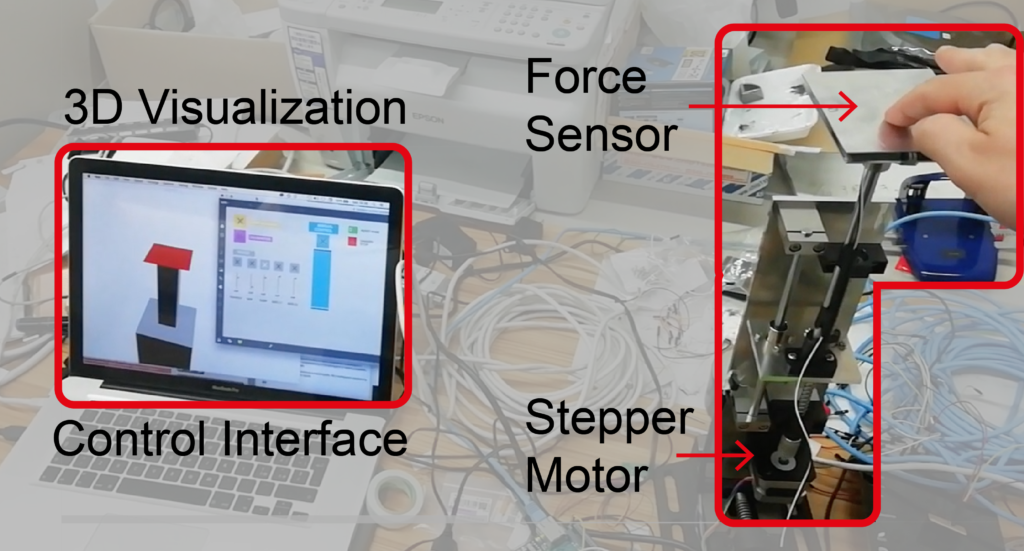One of my interests is the development of haptic devices that can help humans to get physically in touch with virtual environments and digital data. I feel the need to find new ways to get the digital world more close to our body and away from omnipresent screens and any type of pixel-based display.
On this page, I’m collecting several prototypes and systems I designed and developed for different clients and artists. They range from haptic displays to haptic interfaces for audio-visual virtual environments.
2. Force-feedback: contact and sound
3. Force-feedback: spring and sound
Two-ways Haptic Display
The physical artifact displays a motion pattern. When a person touches its top, the motion stops and it can be directly modified through touch input. The artifact exhibits a spring-like behavior, which produces a perceivable force-feedback, which can be used to render different types of materials and physical properties of virtual materials. When the person releases his/her finger, the motion pattern restart.
Physical Output
Different motion patterns are played by the physical artifact.
Here, the motion is manually controlled through a GUI slider.
Force-feedback: contact and sound
Force-feedback: spring and sound
A work-in-progress collection of haptic devices for Virtual Musical Instruments.
A force-feedback interface for interacting with a virtual reed instrument. It is a hybrid instrument, which sounds between a clarinet and a saxophone. The sound model is developed with Modalys.
This application lets a user control a virtual bow that interacts with different types of virtual metal plates. The sound model is developed with Modalys.
During the first Creation session for “Israel & イスラエル“, we developed a haptic communication system. Audience members can physically experience (in real-time) the force produced by the steps of Israel Galvan through a series of wearable haptic transducers.
